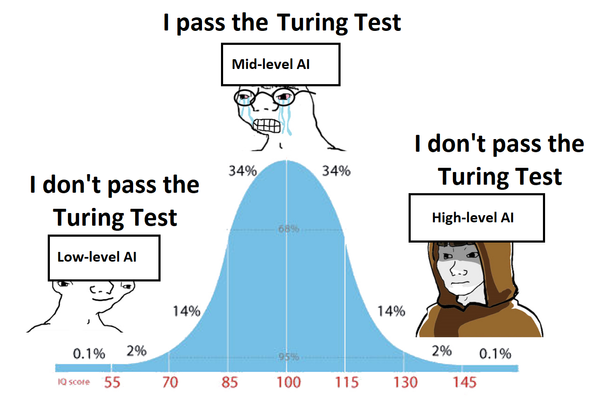Exploring the Role of Social and Solidarity Economy in Sustainable Development
In recent years, there has been increasing recognition of the need for sustainable development practices to address social, economic, and environmental challenges. One approach that has gained attention is the concept of Social and Solidarity Economy

Introduction
In recent years, there has been increasing recognition of the need for sustainable development practices to address social, economic, and environmental challenges. One approach that has gained attention is the concept of Social and Solidarity Economy (SSE). This article explores the role of SSE in sustainable development, highlighting its key principles, benefits, and examples of successful implementation.
Understanding Social and Solidarity Economy
Social and Solidarity Economy refers to a range of economic activities that prioritize social and environmental objectives over profit maximization. It encompasses various forms of organizations, such as cooperatives, mutual societies, associations, and social enterprises. SSE aims to promote social cohesion, democratic decision-making, and the well-being of individuals and communities.
Principles of Social and Solidarity Economy
SSE is guided by several key principles that differentiate it from traditional economic systems:
Solidarity: SSE emphasizes the importance of cooperation, mutual support, and collective action. It seeks to address inequalities and promote social justice. Solidarity is at the core of SSE, as it recognizes the interdependence of individuals and the need to work together to achieve common goals.
Participatory democracy: SSE encourages active participation and involvement of all stakeholders in decision-making processes. It values inclusivity and transparency. By giving individuals a voice and involving them in the decision-making process, SSE ensures that the needs and aspirations of all members of society are taken into account.
Sustainability: SSE prioritizes sustainable development by considering the long-term social, economic, and environmental impacts of its activities. It promotes responsible consumption and production practices. SSE organizations strive to minimize their ecological footprint and contribute to the preservation of natural resources for future generations.
Local development: SSE focuses on local communities and aims to strengthen their resilience and autonomy. It fosters local entrepreneurship and the development of local resources. By promoting local economic development, SSE contributes to the reduction of regional disparities and the creation of sustainable livelihoods.
Benefits of Social and Solidarity Economy
SSE offers several benefits that contribute to sustainable development:
Job creation: SSE provides employment opportunities, particularly for marginalized groups. It promotes decent work and fair wages, reducing poverty and inequality. SSE organizations often prioritize job creation within their communities, helping to alleviate unemployment and improve livelihoods.
Community empowerment: SSE empowers communities by giving them control over their economic activities. It strengthens social ties and builds social capital. By involving community members in decision-making processes and providing them with the means to shape their economic future, SSE enhances community cohesion and resilience.
Environmental sustainability: SSE promotes sustainable production and consumption patterns, reducing resource depletion and environmental degradation. It encourages eco-friendly practices and the use of renewable energy sources. SSE organizations often prioritize environmental sustainability and adopt practices that minimize their impact on the environment.
Resilience and inclusivity: SSE fosters resilience by diversifying local economies and reducing dependence on external markets. It includes marginalized groups, such as women, youth, and persons with disabilities, promoting social inclusion. SSE organizations often prioritize the inclusion of marginalized groups and provide them with opportunities to participate in economic activities on an equal footing.
Examples of Social and Solidarity Economy
SSE has been successfully implemented in various contexts around the world. Here are a few examples:
Mondragon Corporation: Based in Spain, Mondragon is a federation of worker cooperatives operating in diverse sectors. It emphasizes democratic decision-making, profit-sharing, and social responsibility. Mondragon has been successful in creating sustainable jobs and fostering a sense of ownership and solidarity among its members.
Grameen Bank: Founded in Bangladesh, Grameen Bank provides microcredit to empower women and alleviate poverty. It operates on the principles of solidarity, trust, and social capital. Grameen Bank has played a significant role in improving the lives of women in rural areas by providing them with access to financial services and promoting their economic empowerment.
Fairtrade International: Fairtrade International is a global movement that promotes fair trade practices and ensures better working conditions and prices for small-scale producers in developing countries. By establishing fair trade standards and certification, Fairtrade International has helped to create more equitable trading relationships and improve the livelihoods of farmers and workers in the Global South.
Conclusion
Social and Solidarity Economy plays a crucial role in sustainable development by promoting social cohesion, participatory democracy, and environmental sustainability. Its principles and practices offer a viable alternative to traditional economic systems, emphasizing the well-being of individuals, communities, and the planet. As we strive for a more sustainable future, embracing SSE can contribute significantly to achieving our goals. By prioritizing solidarity, participatory democracy, sustainability, and local development, SSE organizations can create positive social and environmental impacts while fostering inclusive and resilient communities.



